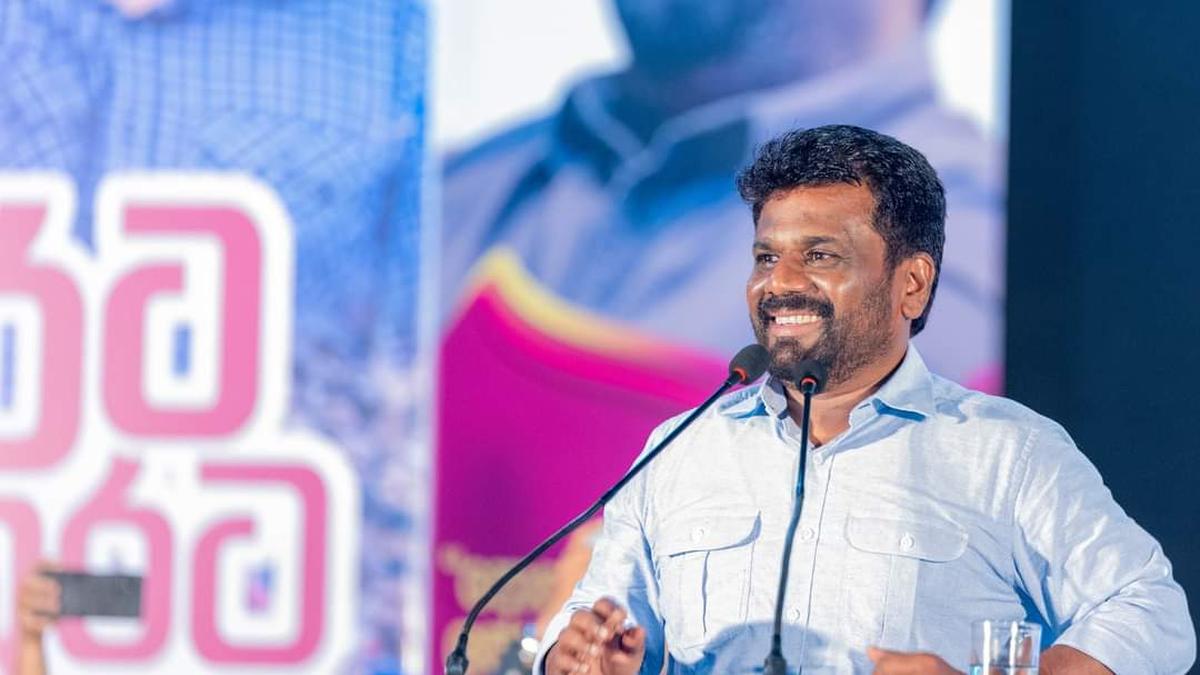Anura Kumara Dissanayake Sworn in as Sri Lanka’s New President, Pledges to Tackle Corruption and Revive Economy
Dissanayake's Presidency Promises Reforms: Lower taxes, cut government spending, anti-corruption measures, economic revival, and political accountability.
Anura Kumara Dissanayake, leader of the People’s Liberation Front (JVP) and known for his Marxist-leaning political ideology, was sworn in as Sri Lanka’s new president today, marking a significant shift in the country’s political landscape. Dissanayake’s victory, seen as a rejection of the old political elite, comes after a heated election in which he secured 5,740,179 votes, defeating opposition leader Sajith Premadasa.
Dissanayake took his oath of office at the Presidential Secretariat building in Colombo, vowing to implement radical reforms to restore Sri Lanka’s economy and political system.
"We need to establish a new political culture, free from the corruption and cronyism that has plagued our country for decades," he said during his inauguration. "This victory belongs to the people who want change, and I promise to work for a better, more just Sri Lanka."
A Vision for Economic Reform
At the core of Dissanayake’s campaign pledges were sweeping reforms aimed at addressing the country’s ongoing economic challenges, exacerbated by the 2022 crisis. He promised to reduce the Pay As You Earn (PAYE) tax from 36% to 24%, ease the cost of living by exempting food, health services, and educational books from VAT, and cut prices on electricity and fuel. Additionally, Dissanayake committed to providing low-interest loans for small and medium-scale businesses through a newly proposed development bank.
"Our focus will be on creating an economy that works for the people, not just the elite," he declared, reiterating his pledge to restore Sri Lanka's oil refinery and improve the fisheries and agricultural sectors. The president’s vision also includes providing farmers with technology-driven tools to increase yields and creating infrastructure to preserve food through cold storage and other methods.
In response to the concerns of local and overseas investors, Dissanayake revealed plans to facilitate new investments that would drive job creation and promote exports in key sectors like tea, rubber, coconut, and cinnamon. "We will harness the potential of our industries and tap into new markets for our products," he said, outlining a strategy that includes assigning specific tasks to ambassadors to attract foreign investments and increase the inflow of dollars.
Promises of Political Accountability
Dissanayake’s campaign promises also included a crackdown on the privileges historically enjoyed by politicians. He pledged to restrict government officials to a single vehicle, end benefits for former presidents and parliamentarians, and cut down unnecessary government expenditure by reducing the number of ministries to 25 and slashing the president’s budget by 50%. His administration will also prohibit the use of high-fuel-consumption vehicles for parliamentarians and government officials.
"We must show the people that their leaders are accountable. Politicians should have no more benefits than the average citizen," Dissanayake stated, adding that there would be no family or friends on overseas government tours unless assigned to specific tasks.
Dissanayake also promised to establish a special three-bench court dedicated to handling fraud and corruption cases and vowed to reform Sri Lanka’s legal and police systems to ensure their independence from political influence. He called for new legislation that would prevent members of parliament from switching political parties after being elected, a move aimed at stabilizing governance and promoting political integrity.
An Inclusive Future
Dissanayake’s vision for Sri Lanka also emphasizes inclusivity and diversity. During his swearing-in ceremony, representatives of the country’s main religious groups—Buddhism, Islam, Hinduism, and Christianity—were present, symbolizing his commitment to unity. In his speech, Dissanayake stressed the importance of uniting all Sri Lankans, regardless of ethnicity or religion, to rebuild the nation.
"Our country’s strength lies in the unity of the Sinhalese, Tamils, Muslims, and all Sri Lankans. Together, we can overcome any challenge," he declared.
Looking forward, Dissanayake’s administration aims to promote eco-based tourism and capture opportunities in the IT sector, which he believes will play a crucial role in reviving the economy and creating jobs for the youth. Additionally, he emphasized the importance of reforming education policies to align with the demands of the economy and ensuring that food, health, and education remain fundamental rights for all citizens through adequate government funding.
Immediate Challenges Ahead
As Sri Lanka’s new president, Dissanayake faces the immediate challenge of balancing his pro-working class agenda with the realities of governance. While many voters were drawn to his anti-corruption stance and pledges to cut government spending, business and financial sectors have expressed concern over his Marxist background. Political analyst Jehan Perera noted that Dissanayake’s economic policies will be closely watched by investors and international financial institutions.
Nevertheless, Dissanayake remained steadfast in his commitment to tackling corruption and restoring confidence in Sri Lankan politics. "I am not a magician," he said, "but with the right knowledge, expertise, and the support of the people, we can build a better future."
His leadership is expected to shape the next chapter in Sri Lanka’s history as the country continues its recovery from economic turmoil, with many hoping that his presidency will usher in a new era of transparency, accountability, and prosperity.






